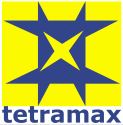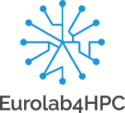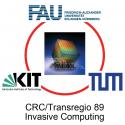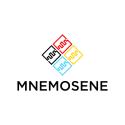10.6 Self-adaptive resource management
Date: Thursday 28 March 2019
Time: 11:00 - 12:30
Location / Room: Room 6
Chair:
Geoff Merret, University of Southampton, UK
Co-Chair:
Andy Pimantel, University of Amsterdam, NL
This session covers run-time resource management techniques for multicores, edge computing devices and storage systems. Proposed techniques are based on either machine learning or heuristics.
| Time | Label | Presentation Title Authors |
|---|---|---|
| 11:00 | 10.6.1 | A RUNTIME RESOURCE MANAGEMENT POLICY FOR OPENCL WORKLOADS ON HETEROGENEOUS MULTICORES Speaker: Antonio Miele, Politecnico di Milano, IT Authors: Daniele Angioletti, Francesco Bertani, Cristiana Bolchini, Francesco Cerizzi and Antonio Miele, Politecnico di Milano, IT Abstract Nowadays, runtime workload distribution and resource tuning for heterogeneous multicores running multiple OpenCL applications is still an open quest. This paper proposes an adaptive policy capable at identifying an optimal working point for an unknown multiprogrammed OpenCL workload without using any design-time application profiling or analysis. The approach compared against a design-time optimization strategy demonstrates to be effective in converging to an solution guaranteeing required performance while minimizing power consumption and maximum temperature; it achieves on average values 0.085 W (5.15%) and 0.83°C (1.47%) worse than the static optimal solution. Download Paper (PDF; Only available from the DATE venue WiFi) |
| 11:30 | 10.6.2 | DMRM: DISTRIBUTED MARKET-BASED RESOURCE MANAGEMENT OF EDGE COMPUTING SYSTEMS Speaker: Dimosthenis Masouros, National Technical University of Athens, GR Authors: Manolis Katsaragakis1, Dimosthenis Masouros1, Vasileios Tsoutsouras1, Farzad Samie2, Lars Bauer2, Joerg Henkel2 and Dimitrios Soudris3 1National Technical University of Athens, GR; 2Karlsruhe Institute of Technology, DE; 3Democritus University of Thrace, GR Abstract Resource management is a key technique for efficiently operating devices in Internet of Things (IoT). In this paper, we propose DMRM, a new algorithm based on economic and pricing models for dynamic resource management of IoT networks under CPU, memory, bandwidth and latency constraints. We use a supply and demand model, smart data pricing and perceived valued pricing, implementing a marketplace where IoT devices and Gateways buy and sell computing and communication resources necessary for task execution. Our new market-based algorithm is compared to relevant approaches showing that it not only reaches near-optimal results, but also, its scalable, distributed nature leads to three orders of magnitude lower execution requirements compared to centralized approaches. Download Paper (PDF; Only available from the DATE venue WiFi) |
| 12:00 | 10.6.3 | GOAL-DRIVEN AUTONOMY FOR EFFICIENT ON-CHIP RESOURCE MANAGEMENT: TRANSLATING OBJECTIVES TO GOALS Speaker: Anil Kanduri, University of Turku, FI Authors: elham shamsa1, Anil Kanduri1, Amir M. Rahmani2, Pasi Liljeberg1, Axel Jantsch3 and Nikil Dutt4 1University of Turku, FI; 2University of California Irvine & TU Wien, US; 3Vienna University of Technology (TU Wien), AT; 4UC Irvine, US Abstract Run-time resource management of heterogeneous multi-core systems is challenging due to the limited energy budget that has to be allocated among diverse workloads and dynamic environment. User interaction within these systems alter the performance requirements, which often conflicts with concurrent applications' objectives and system constraints. Current resource management approaches focus on optimizing fixed objectives, ignoring the variation in system and applications' constraints at run-time. For an efficient resource management, the system has to operate autonomously in complex environments. We present goal-driven autonomy, which allows systems to generate and prioritize their goals in response to the environment changes. Experimental results on Odroid XU3 show the effectiveness of this technique for an efficient resource management by considering dynamic environment compared to the existing fixed objective solutions. Download Paper (PDF; Only available from the DATE venue WiFi) |
| 12:15 | 10.6.4 | SCRUB UNLEVELING: ACHIEVING HIGH DATA RELIABILITY AT LOW SCRUBBING COST Speaker: Tianming Jiang, Huazhong University of Science and Technology, CN Authors: Tianming Jiang1, Ping Huang2 and Ke Zhou1 1Huazhong University of Science and Technology, CN; 2Temple University, US Abstract Nowadays, proactive error prediction, using machine learning methods, has been proposed to improve storage system reliability by increasing the scrubbing rate for drives with higher error rates. Unfortunately, the majority of works incur non-trivial scrubbing cost and ignore the periodic characteristic of scrubbing. In this paper, we aim to make the prediction guided scrubbing more suitable for practical use. In particular, we design a scrub unleveling technique that enforces a lower rate scrubbing to healthy disks and a higher rate scrubbing to disks subject to latent sector errors (LSEs). Moreover, a voting-based method is introduced to ensure prediction accuracy. Experimental results on a real-world field dataset have demonstrated that our proposed approach can achieve lower scrubbing cost together with higher data reliability than traditional fixed-rate scrubbing methods. Compared with the state-of-the-art, our method can achieve the same level of Mean-Time-To-Detection (MTTD) with almost 32% less scrubbing. Download Paper (PDF; Only available from the DATE venue WiFi) |
| 12:30 | IP5-6, 66 | USING MACHINE LEARNING FOR QUALITY CONFIGURABLE APPROXIMATE COMPUTING Speaker: Mahmoud Masadeh, Concordia University, CA Authors: Mahmoud Masadeh, Osman Hasan and Sofiene Tahar, Department of Electrical and Computer Engineering, Concordia University, Montreal, Quebec, CA Abstract Approximate computing (AC) is a nascent energy-efficient computing paradigm for error-resilient applications. However, the quality control of AC is quite challenging due to its input-dependent nature. Existing solutions fail to address fine-grained input-dependent controlled approximation. In this paper, we propose an input-aware machine learning based approach for the quality control of AC. For illustration purposes, we use 20 configurations of 8-bit approximate multipliers. We evaluate these designs for all combinations of possible input data. Then, we use machine learning algorithms to efficiently make predictive decisions for the quality control of the target approximate application, based on experimentally collected training data. The key benefits of the proposed approach include: (1) fine-grained input-dependent approximation, (2) no missed approximation opportunities, (3) no rollback recovery overhead, (4) applicable to any approximate computation with error-tolerant components, and (5) flexibility in adapting various error metrics. Download Paper (PDF; Only available from the DATE venue WiFi) |
| 12:31 | IP5-7, 439 | PREDICTION-BASED TASK MIGRATION ON S-NUCA MANY-CORES Speaker: Martin Rapp, Karlsruhe Institute of Technology, DE Authors: Martin Rapp1, Anuj Pathania1, Tulika Mitra2 and Joerg Henkel1 1Karlsruhe Institute of Technology, DE; 2National University of Singapore, SG Abstract Performance of a task running on a many-core with distributed shared Last-Level Cache (LLC) strongly depends on two factors: the power budget needed to guarantee thermally safe operation and the LLC latency. The task's thread-to-core mapping determines both the factors. Arrival and departure of tasks on a many-core deployed in an open system can change its state significantly in terms of available cores and power budget. Task migrations can thereupon be used as a tool to keep the many-core operating at the peak performance. Furthermore, the relative impacts of power budget and LLC latency on a task's performance can change with its different execution phases mandating its migration on-the-fly. We propose the first run-time algorithm PCMig that increases the performance of a many-core with distributed shared LLC by migrating tasks based on their phases and the many-core's state. PCMig is based on a performance-prediction model that predicts the performance impact of migrations. PCMig results in up to 16% reduction in the average response time compared to the state-of-the-art. Download Paper (PDF; Only available from the DATE venue WiFi) |
| 12:30 | End of session Lunch Break in Lunch Area
On all conference days (Tuesday to Thursday), coffee and tea will be served during the coffee breaks at the below-mentioned times in the exhibition area. Lunch Breaks (Lunch Area)On all conference days (Tuesday to Thursday), a seated lunch (lunch buffet) will be offered in the Lunch Area to fully registered conference delegates only. There will be badge control at the entrance to the lunch break area. Tuesday, March 26, 2019
Wednesday, March 27, 2019
Thursday, March 28, 2019
|















